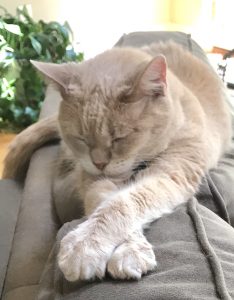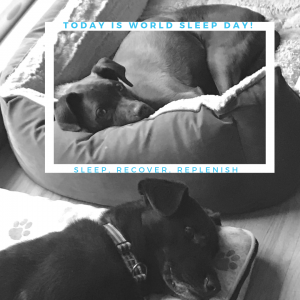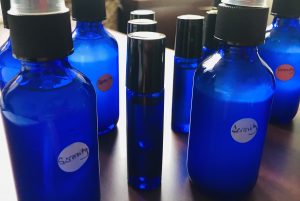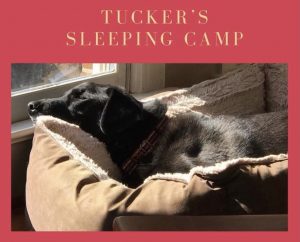 Sleep...we all require it. While some say they don't need lots or they don't have time for it, I challenge them to reconsider. Sleep, quality sleep that is, is critical for optimal health. It allows the body to recover and repair, helps boost immunity as well as memory filing and ridding the brain of unwanted items.
Sleep...we all require it. While some say they don't need lots or they don't have time for it, I challenge them to reconsider. Sleep, quality sleep that is, is critical for optimal health. It allows the body to recover and repair, helps boost immunity as well as memory filing and ridding the brain of unwanted items.
Not all sleep is the same. Deep, restful sleep may differ from what you may experience. It’s the ability to not only fall asleep but stay asleep so the body can detoxify, reset and even balance blood sugar levels. Just consider a night when you didn’t get quality sleep or enough sleep. Maybe you felt groggy or fatigued the next day. Perhaps you noticed that you craved sugary, processed foods or your heart rate was elevated a bit and you were on edge due to cortisol spikes. The quality of slumber is connected to every dimension in life from mental, emotional, physical, social and more.
If you joined me for the Sleep, Health and Well-Being seminars (2-part sleep set), you’re aware that everything is impacted by the sun. Plants, animals, people…we all rely on the sun to set our circadian rhythm. Research shows that sleep phases impact other bodily cycles too including the rhythmic patterns of immunity and even digestion. While there are varied stages of sleep, the brain produces 90-minute cycles of slow wave sleep that is followed by rapid eye movement (REM) where we dream. Fun fact is that the gut also experiences 90-minute muscle contractions followed by rapid bursts of movement. Sound familiar? There is evidence to show that poor quality sleep can disrupt digestion. If you listened to the seminars, you’ll know that the gut produces 80-90% of our serotonin (neurotransmitter related to mood) and that it’s a precursor to melatonin which helps us find our slumber. Everything, like the circadian rhythm, is connected and relies upon one another to get the job done. There are some hindrances in daily life that impact this natural cycle such as artificial light, blue light from technology, caffeine, nicotine and other lifestyle factors. First, identify the root cause of your sleep concerns. I always say, don’t put tape over the warning light in the car. Figure out what’s going on. You can check out the seminars and determine some areas that might need addressing. For the sake of some quick tips, I’ll address a few key areas in this article.
is followed by rapid eye movement (REM) where we dream. Fun fact is that the gut also experiences 90-minute muscle contractions followed by rapid bursts of movement. Sound familiar? There is evidence to show that poor quality sleep can disrupt digestion. If you listened to the seminars, you’ll know that the gut produces 80-90% of our serotonin (neurotransmitter related to mood) and that it’s a precursor to melatonin which helps us find our slumber. Everything, like the circadian rhythm, is connected and relies upon one another to get the job done. There are some hindrances in daily life that impact this natural cycle such as artificial light, blue light from technology, caffeine, nicotine and other lifestyle factors. First, identify the root cause of your sleep concerns. I always say, don’t put tape over the warning light in the car. Figure out what’s going on. You can check out the seminars and determine some areas that might need addressing. For the sake of some quick tips, I’ll address a few key areas in this article.
If you have difficulties falling asleep is it because of a racing mind or mind chatter? While I do advise people to practice deep breathing to cultivate calm, this could be a sign that your circadian rhythm needs a little rebalancing and that your cortisol, stress hormone, may be elevated and your melatonin, sleep hormone, is decreased. Basically, your rhythm is flipped.
 The pineal gland is a pea-size endocrine gland in the brain that makes melatonin. In addition to being in nature and resetting your circadian rhythm naturally, the use of essential oils (EOs) can assist this process. I’ve dabbled in EO for over two decades and it’s this perfect blend (no pun intended) of my biochemistry and naturopathy backgrounds. Certain essential oils have been shown to support the areas of the brain and bodily systems to help create calm and promote sleep. In the recipes below, you can do quick EO mixes daily instead of creating a bottle blend or you can make a small bottle. Learn more on supplies you need.
The pineal gland is a pea-size endocrine gland in the brain that makes melatonin. In addition to being in nature and resetting your circadian rhythm naturally, the use of essential oils (EOs) can assist this process. I’ve dabbled in EO for over two decades and it’s this perfect blend (no pun intended) of my biochemistry and naturopathy backgrounds. Certain essential oils have been shown to support the areas of the brain and bodily systems to help create calm and promote sleep. In the recipes below, you can do quick EO mixes daily instead of creating a bottle blend or you can make a small bottle. Learn more on supplies you need.
For those who need a reset, the following blend can assist in activating the pineal gland to release melatonin. I personally like to apply this blend to the front of my forehead an inch below my hairline. In addition, behind and above the ears is nice too.
- Lavender (Lavandula angustifolia specifically for this recipe and all following recipes), Rose Geranium, Balsam of Peru and Myrrh. Check out this study to learn more.
- 2-3 drops of each into a ½-1 teaspoon of fractionated coconut oil
As with a seesaw, things want to be balanced. When melatonin is increased, cortisol levels go down. This blend is also helpful if you’re stressed, a bit anxious and over worried. It helps the body calm down. Another blend I’ve found helpful for sleep, worry and overwhelm includes the following ingredients.
- Roman Chamomile, Blue Tansy, Lime, Spikenard, Tangerine and Lavender. Lavender contains linalool and has been shown to activate Gamma-Aminobutyric Acid or GABA, the calming neurotransmitter.
- 2-3 drops of each into a ½-1 teaspoon of fractionated coconut oil
If you have nighttime waking or awaken soon after falling asleep, it may be due to a few things. I’ve pulled a few possibilities I've seen over the years which include blood sugar awakenings, hormonal issues and liver and gall bladder disturbances.
possibilities I've seen over the years which include blood sugar awakenings, hormonal issues and liver and gall bladder disturbances.
Blood Sugar Awakenings – A lot takes place overnight. The body needs a steady supply of energy to keep you asleep but also for repairs and recovery. When blood sugar drops, cortisol surges as an emergency blood sugar raising strategy. This cortisol surge wakes you up!! Did you know that if you’ve had a traumatic brain injury (TBI), your brain will have increased glucose demands during slumber? The brain is in a healing process and has greater demands for fuel. Learn more.
Since the pancreas is responsible for blood sugar regulation, I like to apply this blend on the skin over the pancreas before going to bed.
- Anise Seed EO (we used to have an anise bush and loved it...it smells like licorice), Rose, Geranium and Rose Geranium
- 2-3 drops of each into a ½-1 teaspoon of fractionated coconut oil
Hormonal Issues – Hormones are a consideration and women are especially impacted by hormonal fluctuations during their cycle, pregnancy, pre-menopause and menopause. During certain times, there may be an imbalance in progesterone and estrogen. As mentioned with blood sugar, night sweats and hot flashes can be caused by a surge of cortisol.
- Vetiver (it’s thicker in consistency than most EOs), Ylang Ylang, Lavender, Clary Sage, Sage and Thyme. This blend is great for supporting the adrenal glands, calming the nervous system and fighting fatigue. Clary sage alone has been shown to lower cortisol levels by 35% and assist with balancing thyroid hormones. I've had women literally hug me for this recipe!!
- 2-3 drops of each into a ½-1 teaspoon of fractionated coconut oil
 Liver and Gall Bladder Disturbances – If you read the blog - A River Runs Through Us, you know the liver is activated between 1 and 3am. If you wake up at this time, it could be the liver is exhausted and overloaded. Since the liver processes everything we come into contact with including emotions, it has to deal with quite a bit. It plays a role in managing energy by storing and releasing blood sugar. The gallbladder is closely related to the liver.
Liver and Gall Bladder Disturbances – If you read the blog - A River Runs Through Us, you know the liver is activated between 1 and 3am. If you wake up at this time, it could be the liver is exhausted and overloaded. Since the liver processes everything we come into contact with including emotions, it has to deal with quite a bit. It plays a role in managing energy by storing and releasing blood sugar. The gallbladder is closely related to the liver.
What’s interesting is that unlike night-time waking from blood sugar, the liver and gall bladder trigger awakenings that are accompanied by a feeling of grogginess and you don’t stay awake but drift back off to sleep. Knowing this, you are able to determine what might be going on. If you suspect it’s night-time awakening due to liver or gall bladder issues, read this article and consider the following.
- Ylang Ylang, Lavender, Peppermint and German Chamomile or Roman Chamomile. You can apply this on the lower right front ribs before going to bed which is the location of the liver and gall bladder to absorb.
- 2-3 drops of each into a ½-1 teaspoon of fractionated coconut oil
It may seem like a lot of essential oils to begin with but try one recipe and go from there. You can't go wrong with having Lavender, Ylang Ylang, Roman Chamomile and Clary Sage in your apothecary. You can even create your own synergy blends like I have over the years. Along with a little mixology, try the lifestyle tips provided in part 2 of the seminar set. By making slight adjustments, getting some vitamin D, being present with your breath, you should be sleeping like a baby soon. Sweet dreams!
having Lavender, Ylang Ylang, Roman Chamomile and Clary Sage in your apothecary. You can even create your own synergy blends like I have over the years. Along with a little mixology, try the lifestyle tips provided in part 2 of the seminar set. By making slight adjustments, getting some vitamin D, being present with your breath, you should be sleeping like a baby soon. Sweet dreams!
